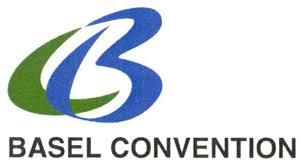Chemycal has been acquired by 3E
Learn MoreChemycal has been acquired by 3E
Learn MoreDiscover how Chemycal PRO helps you boosting your regulatory monitoring:

Register for the MOOC at: https://learning.climate-kic.org/en/programmes-and-courses/e-waste
The MOOC was re-launched in February 2020.
What is a MOOC? A MOOC is a Massive Open Online Course that brings together people across the world and gives them free access to quality online learning materials.
What is the result?
A great learning experience that puts you in the perfect place to take action!
What is the E-waste Challenge MOOC?
Online learning materials featuring audio, video, and links to a fantastic range of online updated resources for you to explore in any way you choose. Add to this a great range of activities and the ability to get into lively discussions with other learners. All the materials have been endorsed by international e-waste specialists and experts.
The E-waste Challenge MOOC is presented in five stand-alone and comprehensive online mini-courses , it is self-paced and introduces challenge and possible solutions for the environmentally sound management of e-waste. Participants can follow a long track following all the five mini-course or a short track by selecting only some mini-courses.
What are the learning objectives?
This course will help the participants to understand why and how to manage e-waste in an environmentally sound manner and how action on e-waste could be taken in their own life, business, or organization.
The aims of the course are to:
(*) Show how sound management of e-waste can help reduce GHG emissions, mitigate climate change and prevent hazards to health and the environment in accordance with the Basel, Rotterdam, and Stockholm conventions;
(*) Share best practices, technological innovations, and sustainable e-waste recovery and inclusive recycling business models;
(*) Present innovative research on technological solutions to reduce hazard by design;
(*) Explore how the value in e-waste can be extracted in a way that supports the local economy and protects people’s health and the environment, evaluating the socio-economic impacts of this change into more sustainable business models;
(*) Explore incentives and opportunities for e-waste recycling;
(*) Advocate for the Environmentally Sound Management (ESM) of e-waste.
CONTINUE READING ON www.basel.int
2013 © MyChemicalMonitoring. ALL Rights Reserved. About Us | Terms and Conditions